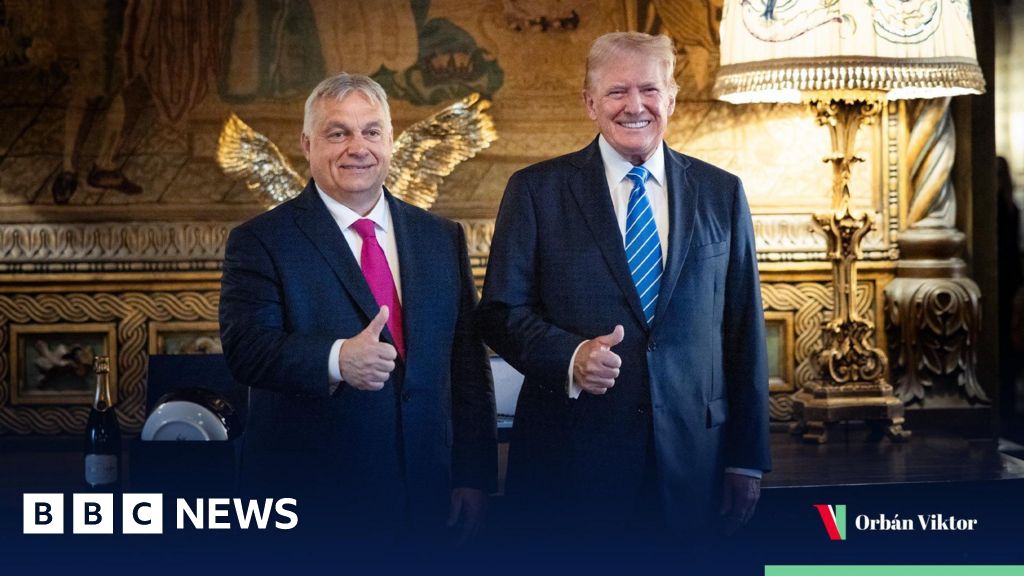Orbán Hails Historic Trump-Putin Summit as Turning Point for a Safer World and Global Peace

Orbán Sees a Safer World Following Trump and Putin’s Historic Summit
In a significant statement reflecting on recent international developments, Hungary’s Prime Minister expressed a positive outlook on global safety after the unprecedented meeting between two of the most powerful nations. He emphasized that years of discord and hostile exchanges between these nations, which have nuclear capabilities, have now shifted towards a new chapter marked by cooperation rather than confrontation. This transformation, he asserts, makes the world fundamentally safer.
Historically, the relationship between these major powers has often been fraught with tension, mistrust, and occasional public antagonism, undermining efforts at maintaining global peace. For years, their interactions were shadowed by the threat of nuclear conflict and deteriorated diplomatic ties, casting a persistent shadow on international stability. The recent direct dialogue marks a stark departure from this pattern, suggesting a cautious yet hopeful step toward rebuilding trust and reducing nuclear risks.
By highlighting the cessation of unfriendly messaging and the resumption of diplomatic engagement, the statement underscores an important milestone in international relations. The implication is that the world can now anticipate a period where dialogue replaces discord, creating conditions more conducive to peace and stability. This marks a notable reorientation in how these nations interact on the world stage, with potential ripple effects for global security.
Significance of Renewed Dialogue Between Major Powers
The meeting in question can be viewed as a critical juncture, breaking a prolonged standstill in direct communications. Leaders of these countries, bearing the responsibility for the world’s largest nuclear arsenals, have long been under scrutiny regarding their diplomatic conduct and strategic decisions. The recent face-to-face interaction signals a willingness to engage in conversations that have been elusive for an extended period.
Importantly, this engagement was expected to address core challenges that have defined the geopolitical landscape for years. While the outcomes of the summit are still evolving, the mere fact of mutual willingness to convene and discuss contentious issues served to revive hopes for reduced tensions. This step is vital because constructive dialogue among major nuclear stakeholders is a cornerstone of preventing conflict escalation globally.
The public reaction from influential political figures reflects a broader sentiment that this engagement could pave the way for more stable international relations. It reflects optimism that previous cycles of hostility and antagonism might give way to collaboration and reduced threat levels, which is critical for both regional and worldwide peace.
Contextualizing the Shift in Global Security Dynamics
Understanding this positive perspective requires looking beyond the summit itself and into the longer trends of global diplomacy and security. The decades-long rivalry between these two countries has shaped much of the modern security architecture. Challenges ranging from arms control agreements to regional conflicts have repeatedly tested their diplomatic resolve.
Recognition that adversarial exchanges have been curtailed suggests progress in rebuilding the foundational elements necessary for sustained peace. The hope is that this will lead to concrete measures to reinforce arms control, enhance transparency, and foster cooperative approaches to security threats. This environment is critical in mitigating risks linked to nuclear weapons and geopolitical volatility.
In essence, the statement underscores a belief that the current moment represents a constructive turning point — a symbolic and practical step away from confrontation and toward dialogue. It reflects a global aspiration that such bilateral engagements help stabilize the international order.
This optimistic outlook serves to inspire further diplomatic efforts, encouraging all stakeholders to build upon the progress made. The emphasis on improved safety highlights a collective interest in moving away from divisiveness and toward mutual understanding and peaceful coexistence.
